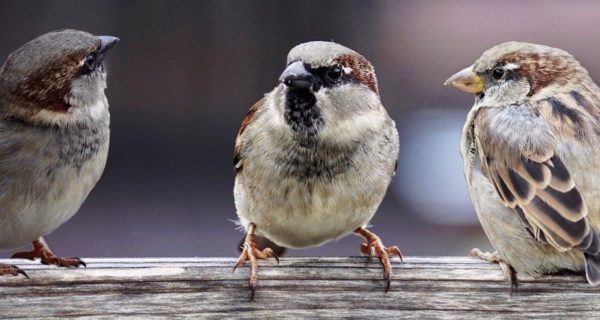There is often a shadow of anxiety that catches me at random times every day. It’s a howling voice that tells me to be on guard. It likes to mock my hard work as well as my moments of rest. Every grace from Heaven might just vanish in a snap, so it would say. The big dream of a satisfied existence has foundations of straw, and given the world’s problems, even a gentle breeze might just be enough to make all of it crumble.
Worry after worry piles up almost at a pace that mocks the preparations my wife and I do. On the road to our wedding ceremony, we had always prayed to have our relationship flourish in the soils of love and joy. That we be protected from worldly cares, the thorny ground that causes the saplings of the good seed to whither. Now conversations about heavenly matters give way to meetings about cash, savings, investments, medical bills, and rent. They are all important, of course. In theory, though, they should become less so when understood according to the Divine promise saying that people “don’t live on bread alone.” Still, one could never be too careful, too careful—especially about money—in these times of uncertainty. So after I take that solemn pause to remember that life isn’t all about practicality, I lapse back into another round of pouring thought after thought about securing my bank account.
I remember one time when I fussed too much about buying the wrong type of bread. It’s silly, really, because I could have eaten every piece of it, except I can be a picky glutton. I decided to have the blender shred them into crumbs for sparrows to eat on our terrace. The birds can have the bread because I won’t. As for my wife, she had more than enough of her favorite loaves, which I should have kept in mind thus saving myself from making the wrong purchase. I was upset with myself. Then I felt a dash of more disappointment in my focusing too much on my mistake. The night of that bread-worrying and self-blaming, I brought up in prayer how profligate (and overscrupulous) my soul can be. I waste money, and I waste bread. Then my wife, in our joint colloquy with God, blurted that at least I can be a good Samaritan to the sparrows, those tiny creatures of our Lord who never sowed, never reaped, nor built granaries of seeds. The animals will wake up one morning to find crumbs of wheat bread for breakfast.
So there I was, the following day, watching the sparrows peck on wasted bread. I envied the sparrows, a bit. But it’s not that jealousy humans sometimes have about a bird’s ability to fly. Much less, my touch of bitterness had nothing to do with the bread I had to give them. It’s rather about how these sparrows could live without human anxieties. Surely, the reason is that birds don’t have a mind as complex as a man’s. Also, animals don’t have monthly bills like my family does. Then again, would I even want to be like them? Maybe, I suffer the price of being “more important” than birds. Or, perhaps an explanation lies in the spiritual mystery of God’s design, which made birds what they are and humans, well, supposedly of a higher kind? I have so many questions, but then I thought—and I don’t know how or why, what triggered it—that to dwell on these queries misses the point.
The crucial suggestion of that encounter with innocent birds, I’d dare say, is to consider contemplating that childlike trust in a Providential Hand. What’s being offered is the possibility of having an instinct to live a carefree life. It might be a call to internalize a sort of holy rashness. That if life doesn’t dare to be jovial, insouciant, even careless, the world shall risk losing the beauty of the sky as a vast canvas for the little birds that prove how life can be so light. So this has led me to say that, thank God, the birds aren’t like me. Or else, they would never dare to fly, worried they might find no food after hours of flight or concerned with having to bring a penny to pay for crumbs. Birds can be so blessed that although they must often be quick to catch their meal, in God’s plan, it’s their food that eventually comes to them. So the Lord has emphasized it. The birds will get by even if they’re not as important as people.
Obviously, this isn’t to say that I shun my humanity and thus disdain God’s gift of having me share in His image. Least of all, I don’t suggest that my experience testifies to humanity dwelling in pure misery while the birds of sister nature are in a state of bliss. I might have once prayed to have wings, which is perhaps a childish petition that I must be careful of sincerely asking. But if I’ll be tempted to make the same prayer again, to have that disposition worthy of Heaven’s lightness, I’d say what I should be really asking for is to have the faithful heart of a little one. It could be something like that of a sparrow’s or, in keeping with my own species, the heart of a child.

